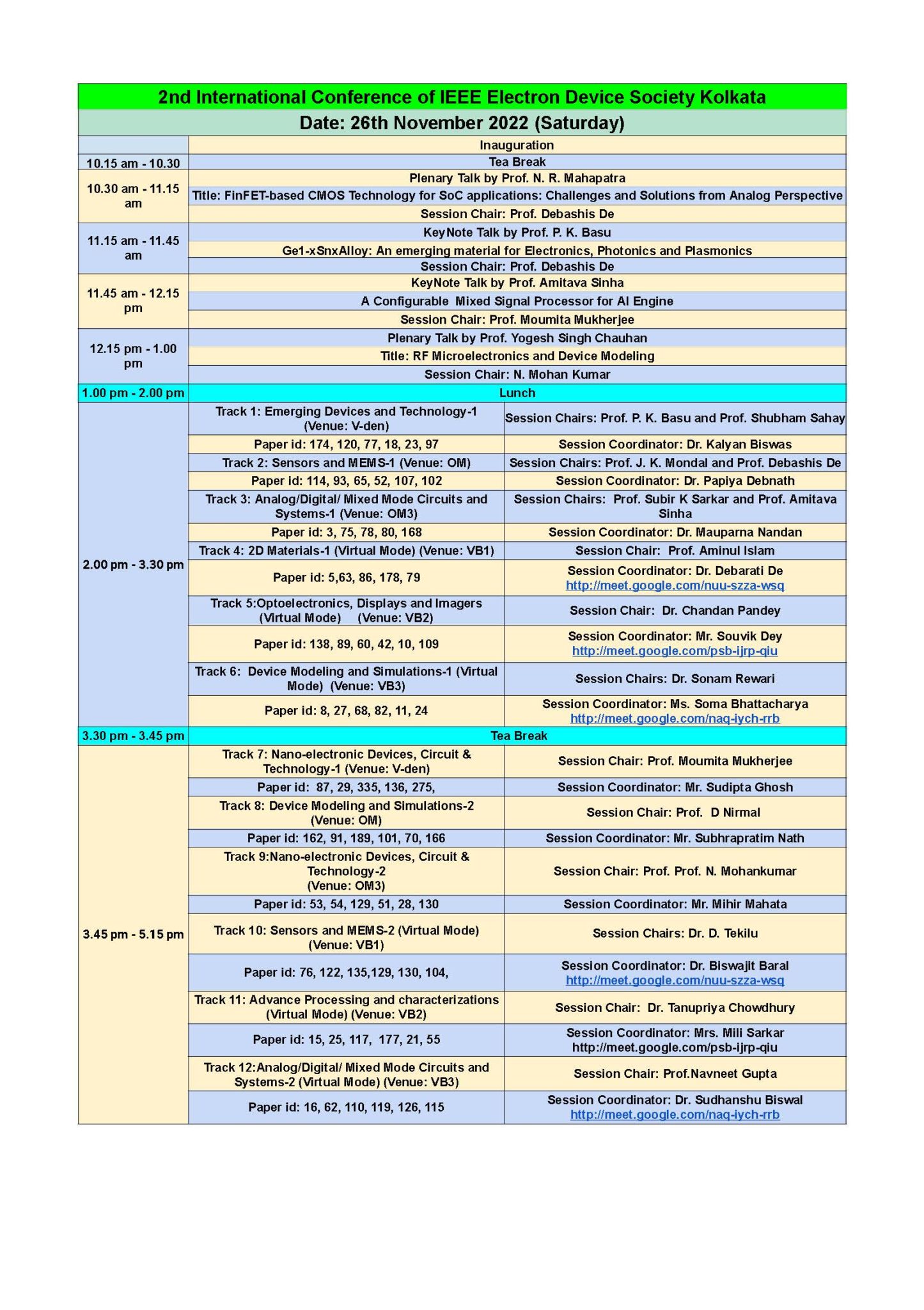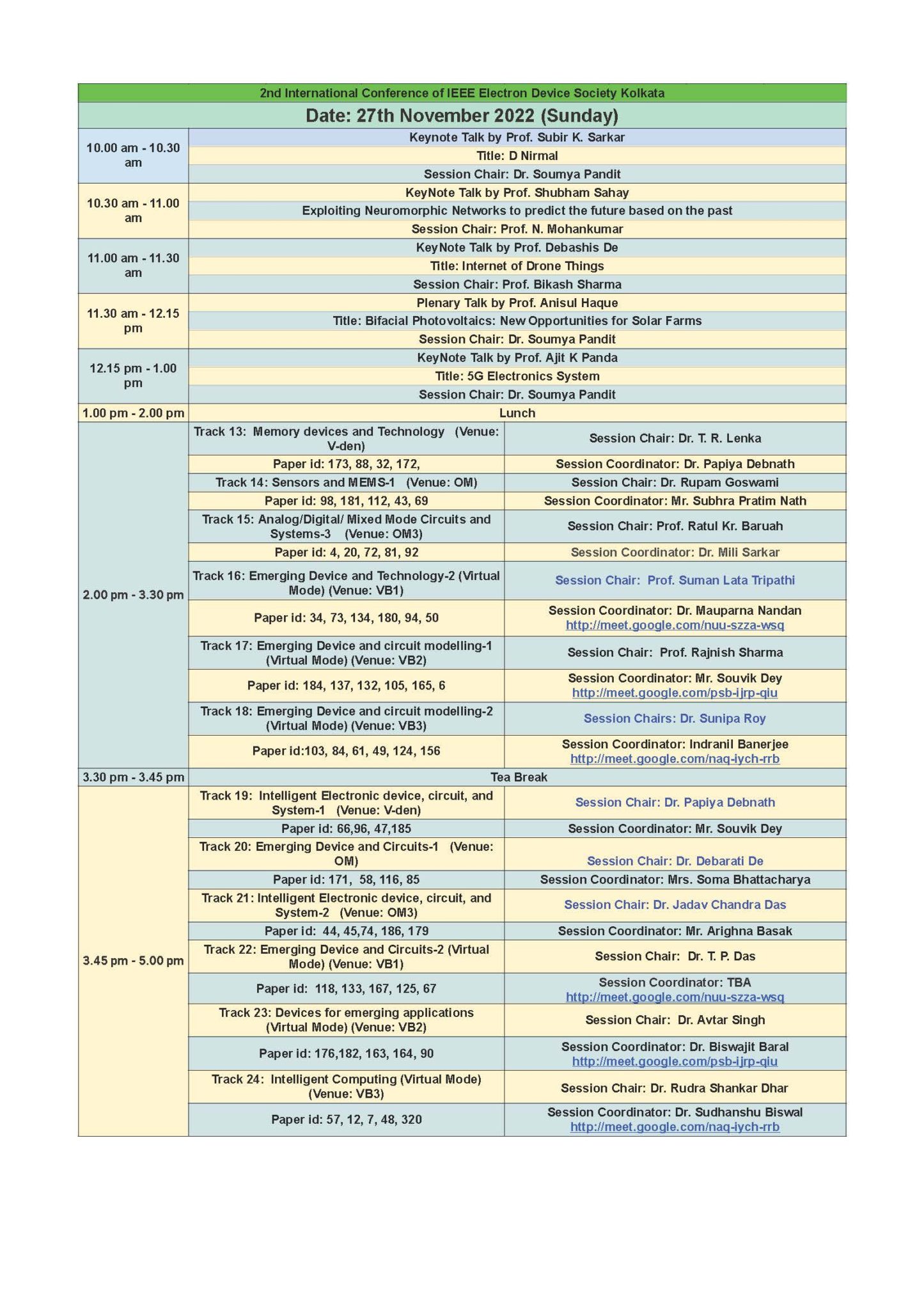Welcome to IEEE EDKCON 2022
[events-calendar-countdown id=”1383″ backgroundcolor=”#2a86f7″ font-color=”#ffffff” show-seconds=”yes” size=”medium” event-start=”EDKCON 2022 started” event-end=”EDKCON 2022 ended” autostart-next-countdown=”no” autostart-text=”” autostart-future-countdown=”no” future-events-list=”” main-title=”2nd International Conference of IEEE Electron Device Society Kolkata “]
IEEE EDKCON 2022 papers is now published and is available in IEEE Xplore.
LInk: https://ieeexplore.ieee.org/xpl/conhome/10032824/proceeding
To see the photos taken during EDKCON 2022 click here (Courtesy: Mainak Mukherjee)
The “EDKCON 2022” Conference organizing committee has decided the following three papers to be awarded as “EDKCON 2022 Best Paper Award” based on the feedbacks received from the Session Chairs.
-
1st Prize: Monalisa Pandey (Research Scholar, BIT Mesra) for presenting the paper entitled “Single Event Upset Mechanism in SRAM Latch and Its Circuit-Level prevention Technique” authored by Monalisa Pandey and Aminul Islam
-
2nd Prize: Indrajit Sil (Research Scholar, IIEST Shibpur) for presenting the paper entitled “ZnO Homojunction Based BTX Vapor Sensor Device” authored by Indrajit Sil and Partha Bhattacharyya
-
3rd Prize: Abhishek Ray (Research Scholar, NIT Raipur) for presenting the paper entitled “Influence of total ionizing dose on LWM Bulk and SOI p-FinFET” authored by Abhishek Ray, Alok Naugarhiya and Guru Prasad Mishra
Congratulations to the presenters and authors of the “EDKCON 2022” Best Paper Award Winners. Awardees will receive a certificate and a memento.
Congratulations to all, and thank you to everyone who participated in EDKCON 2022.
General Information
The 2022 IEEE Electron Device Kolkata Conference (2022 IEEE EDKCON) will be held in “Vedic Village, Rajarhat-Kolkata, India” during November 26-27, 2022. Organized by IEEE EDS Kolkata Chapter, EDKCON 2022 is expected to bring together researchers, educators, students from across academia, government, industry, and non-governmental organizations to discuss, share and promote current works and recent accomplishments across all aspects of Electron Devices and circuits. Original unpublished papers are solicited.
Accepted and presented papers will be submitted for inclusion into IEEE Xplore subject to meeting IEEE Xplore’s scope and quality requirements
For outstation candidates under special conditions, virtual mode of presentation is acceptable.
Car service will be provided from Vedic Village to Ecospace/ Rajarhat Chowmatha in morning or evening. The contact of the concerned person will be shared soon.
Click here to download the final program schedule
Final Date for paper Submission (No further extension) is 15th August, 2022 (Closed)
Paper Submission Link: https://cmt3.research.microsoft.com/IEEEEDKCON2022 (Closed)
Extended versions of papers for potential publication in the following journals:
- Special Issue in Physica Scripta (SCI Indexed with I.F. 3.081) , Published by IOP Science, UK
- Selected papers will be uploaded to Journal of Computational Electronics (JCEL) (SCIE Indexed with I.F. 1.983), published by Springer
- Special Issue in Journal of Active and Passive Electronic Devices (JAPED) (Web of Science Core Collection ESCI), Published by Old City Publishing, USA
- Special Issue in Nanomaterials and Energy (Web of Science Core Collection ESCI & Scopus Indexed), Published by ICE Publications
- Selected papers will be uploaded to Memories – Materials, Devices, Circuits and Systems, published by Elsevier
- Special Issue in Solid State Electronics Letters, Published by Elsevier
- Special Issue in SAE International Journal of Connected and Automated Vehicles (Scopus Indexed) , Published by SAE International, USA
Extended versions of papers for potential publication as contributed book chapters in edited books:
- Apple Academic Press, Inc. (Exclusive co-publishing partnership with CRC Press, a member of the Taylor & Francis Group), Florida , USA
- Nova Science Publishers, Inc., NY, USA
- Cambridge Scholars Publishing, UK
Important Dates:
Last date for paper submission: 15th July, 2022 31st July, 2022 15th August, 2022 Closed
Date for acceptance: 15th September 2022 30th September 2022 (Due to delay in obtaining review reports from the reviewers)
Registration deadline: 15th October 2022 25th October 2022 5th November 2022
Camera-ready paper submission: 15th October 2022 01st November 2022 10th November 2022
Conference dates: 26th-27th November 2022
Call for Papers
Extended versions of papers for potential publication in the following journals:
- Special Issue in Physica Scripta (SCI Indexed with I.F. 3.081) , Published by IOP Science, UK
- Selected papers will be uploaded to Journal of Computational Electronics (JCEL) (SCIE Indexed with I.F. 1.983), published by Springer
- Special Issue in Journal of Active and Passive Electronic Devices (JAPED) (Web of Science Core Collection ESCI), Published by Old City Publishing, USA
- Special Issue in Nanomaterials and Energy (Web of Science Core Collection ESCI & Scopus Indexed), Published by ICE Publications
- Selected papers will be uploaded to Memories – Materials, Devices, Circuits and Systems, published by Elsevier
- Special Issue in Solid State Electronics Letters, Published by Elsevier
- Special Issue in SAE International Journal of Connected and Automated Vehicles (Scopus Indexed) , Published by SAE International, USA
Extended versions of papers for potential publication as contributed book chapters in edited books:
-
- Apple Academic Press, Inc. (Exclusive co-publishing partnership with CRC Press, a member of the Taylor & Francis Group), Florida , USA
- Nova Science Publishers, Inc., NY, USA
- Cambridge Scholars Publishing, UK
Topics of Interests but not limited to
Track 1: Emerging Devices and Technology (EDT)
Track-2: Analog/Digital/ Mixed Mode Circuits and Systems (ADM-CS)
Track 3: Memory devices and Technology (MDT)
Track-4: Device Modeling and Simulations (DMS)
Track 5: Nano-electronic Devices and Technology (NDT)
Track 6: Advance Processing and characterizations (APC)
Track 7: Device and System Reliability (DSR)
Track 8: Optoelectronics, Displays and Imagers (ODI)
Track 9: Sensor and MEMS (SEM)
Track 10: Intelligent Electronic device, circuit, and System (IDCS)
Track Details |
|
| Name of the Track | Details of the track |
| Track 1: Emerging Devices and Technology (EDT) | Biodegradable and Flexible Electronic Devices; Electron Devices for “More than Moore”, 2D and devices on low-dimensional materials, Neuromorphic and approximate computing devices, Spintronic and magnetic devices, Steep-slope devices, Quantum computing devices, Cryogenic Devices, Topological materials and devices, and phase transitions transistors, Compound Semiconductors and High-Speed Devices, Wearable electronics. Wide bandgap and ultra-wide bandgap semiconductors, Power devices, High Performance III-V, III-Nitride and Si, SiGe devices for mm-wave to THz.Device and circuits for 5G and 6G, Power device technologies for micro and mm-wave |
| Track-2: Analog/Digital/ Mixed Mode Circuits and Systems (ADM-CS) | Analog and Mixed Signal Circuits and Systems, Communications Circuits and Systems, Sensory Circuits and Systems, Nonlinear Systems and Circuit Theory, Visual Signal Processing and Communications Education in Circuits and Systems, Beyond CMOS: Nanoelectronics and Hybrid Systems Integration Digital Integrated Circuits and Systems, Power and Energy Circuits and Systems, Biomedical Circuits and Systems Neural Networks and Neuromorphic Engineering, Digital Signal Processing, Multimedia Systems and Applications, Low power circuits and system, high speed circuits and systems. Control electronics for Quantum Computing |
| Track 3: Memory devices and Technology (MDT) | 3D memory technologies, Conventional memories, Emerging memories for neural networks and AI/ML applications, Computing-in-memory, new memory hierarchy. |
| Track-4: Device Modeling and Simulations (DMS) | Multiscale simulation with hybrid techniques, TCAD and benchmarking, Atomistic simulation, Compact models for device/system technology co-optimizations, Alternative computing device modeling, modeling of emerging devices, Material and interconnect modeling, Advanced packaging and 3D integration modeling, Device modeling for photonics, sensor computing, RF device and circuits, and MEMS. |
| Track 5: Nano-electronic Devices and Technology (NDT) | Novel nanomaterials and devices, Nanobiotechnology, Nanomaterials for energy conversion, Green nanotechnology, Nano Mechanics, Carbon Nanotubes emitters, Biological applications of nanoparticles, Nano Fabrication and Metrology, Nano Heat Transfer and Energy Information Technology, Nano Sensors, Actuators and Systems Nanobionics, Nanofluidics and Bio Chips, Organic Electronics, nanowires and nanosheets. |
| Track 6: Advance Processing and characterizations | Advanced, novel process integration schemes and (applications-driven) scaling approaches, Device/System technology co-optimization, Sequential, monolithic 3D integration, heterogenous chiplets, 2.5/3D integration, Interconnects (TSV, BEOL, Frontside and Backside connectivity), BEOL compatible transistors, CMOS platform technologies & opportunities |
| Track 7: Device and System Reliability (DSR) | Reliability of devices and systems for biomedical, automotive, and aerospace, Reliability of FEOL/MEOL/BEOL, latch‐up and ESD, Design for reliability and variability-aware design, Robustness and security of electronic circuits and systems, Reliability of cryogenic devices for future quantum computing applications, Noise characterization of device and system, Reliability of biomedical devices, circuits and systems, Degradation mechanisms of emerging memories, Reliability of devices, circuits, and systems for more-than-Moore, reliability of power devices |
| Track 8: Optoelectronic Devices and circuits, Displays and Imagers (ODI) | Topological optoelectronics and photonics, Optoelectronic integration, Heterogeneous optoelectronic integration, Single-photon devices, Holographic devices and displays, Luminescent devices-based perovskites and quantum dots, Intelligent Image Sensors, PV systems, Solar cells, Displays, and imagers for augmented or virtual reality, Imagers with an unconventional spectral bandwidth, high sensitivity, or high time-resolution. |
| Track 9: Sensorand MEMS (SEM) | Bio-sensor, ISFET, Ph Sensor, gas sensors, Flexible devices for wearable applications, Intelligent sensors with embedded AI/ML, Sensors and devices for human-machine interface, MEMS for Internet of Things, Bio-electronic interfaces and implantable devices, Energy harvesting and storage devices, Flexible devices for wearable applications |
| Track 10: Intelligent Electronic device, circuit, and System (IDCS) | Devices/ Circuits/systems/ Tools/Platforms for AI, Artificial intelligence computing, Advanced neural network design, Neuromorphic processors, Deep learning algorithms, ML algorithms, Hardware accelerators Hardware design for AI, Emerging applications of AI. |
Paper Submission Guidelines and Proceedings
- The paper submission link is given below,
https://cmt3.research.microsoft.com/IEEEEDKCON2022
Paper length must be minimum of four pages and maximum of six pages of A4 size paper including figures and references. Its content must be original and unpublished. The manuscript must be prepared to conform to IEEE Conference format, e.g. font type, size, column, etc. Please find the link given below for the IEEE template,
https://www.ieee.org/content/dam/ieee-org/ieee/web/org/conferences/conference-template-letter.docx
- For outstation candidates under special conditions, virtual mode of presentation is acceptable.
- Accepted paper/s must be registered and presented at the conference.
If an author has got more than one accepted paper, each paper has also to be registered. Papers (pdf ) are to be submitted via the paper submission link.
Paper review process
After submission, the paper enters into the review process. EDKCON 2022 research papers are reviewed using a single-blind process managed through the Conference portal. A committee of reviewers selected by the Technical Committee will review the documents and rate them according to quality, relevance, correctness, and originality. The review process of research papers for EDKCON 2022 will be a two-round process. Papers are reviewed on the basis that they do not contain plagiarized material and have not been submitted to any other conference at the same time (double submission). In the first round, papers are reviewed independently by a minimum of three members of the conference Technical Program Committee (TPC). No outside reviewing is used for In the first round, papers are reviewed independently by a minimum of three members of the conference Technical Program Committee (TPC). No outside reviewing is used for EDKCON 2022.
- Accepted and presented papers will be submitted for inclusion into IEEE Xplore subject to meeting IEEE Xplore’s scope and quality requirements.
Important Dates
| Last date for paper submission: | |
| Date for acceptance: | |
| Registration deadline: | |
| Camera-ready paper submission: | |
| Conference dates: | 26th-27th November 2022 |
Registration Fees
According to EDKCON-2022 conference registration policy, after obtaining the formal acceptance by e-mail, at least one author of each paper must complete registration formalities including payment of full registration fees at the rate mentioned below. Paper will be considered as student paper if all the authors are students only; otherwise full registration fee is applicable.
It is mandatory for one of the authors for each paper to register in advance and present the paper for inclusion in the conference proceedings. According to IEEE’s No-show policy, it is up to the discretion of the Conference Committee to allow “no shows” to be published in the IEEE Xplore Digital Library.
Participants are requested to read all the information displayed below carefully.
REGISTRATION FEE DETAILS:
| Category | From India (In Rs.) | From Outside India (in USD) | ||
| Authors | IEEE | Non-IEEE | IEEE | Non-IEEE |
| Student | 4000 | 5000 | 100 | 150 |
| Academics/Industry | 5000 | 6500 | 200 | 250 |
| Accompanying Person | 3000 | 100 | ||
Account Details for online/NEFT transfer
All payments including Registration fee, Sponsorship & Advertisement must be made in advance through Online (NEFT) to
A/C No. :916020061141894
IFSC Code. :UTIB0000481
Account Name: KGEC IEEE EDS STUDENT CHAPTER
Bank Name: Axis Bank
Address: Kalyani[WB], KALYANI, 741235
Type of A/c: Current
Registration Process:
Step1: Submit the registration fee via online/NEFT to our Bank Account mentioned above
Step 2: During payment of online /NEFT payment of registration fee, please mention Paper ID and Name of Author in the remark section and save screenshot or receipt of the payment for uploading via online registration form later.
Step 3: After successful transfer of the registration fee, the authors needs to fill up and submit the online registration form for completion of the registration process.
Online Registration form Link:https://r10.ieee.org/kolkata-eds/registration-form/
Rules and regulations:
- It is mandatory for one of the authors for each paper to register in advance and present the paper for inclusion in the conference proceedings. According to IEEE’s No-show policy, it is up to the discretion of the Conference Committee to allow “no shows” to be published in the IEEE Xplore Digital Library.
- IEEE Members may needs to produce Membership at the conference venue
- Without formal acceptance of the paper, Deposition of Registration Fee is not allowed.
- Registration fee excludes accommodation
- Registration fee is for a single delegate.
- Registration fee is non refundable.
- Research scholars will not be considered under the category of student.
- Registration is required for each accepted paper separately.
- If an author has more than one accepted paper, he has to register each paper separately. If any co-author(s) wants to participate,, have to register as “Accompanying person”
- All registered authors name will be displayed in this website.
- Best papers award will be provided with certificates.
- Post-conference services as such as processing papers and then forwarding to the journals/Edited Book Series (as per journals requirements) will be handled by the Guest Editors. For Journal/Book series Publication, Guest Editors will communicate to the authors after the conference. Authors should follow the guide lines mentioned by the Guest Editors timely. If they fail to submit papers as revised version within the time limit, conference authority will not be liable for that.
- After conference, according to the feed back given by Judges/experts, papers will be grouped for journals/ Edited Book Series.
- Guest editors for the journals/Book Series will give call to authors for submitting the extended versions. If guest editor is satisfied then he will invite authors for uploading their papers in a particular selected journal/ Book Series.
Committees and Organization
A. Steering Committee
-
-
- Prof. Benjamin Iniguez (Univ Rovira, Virgili, Spain)
- Dr. M. K. Radhakrishnan, Secretary IEEE EDS, IEEE EDS DL
- Prof. Samit Kumar Ray (Director, SN Bose National Centre for Basic Sciences, Kolkata)
- Prof. Nabakanta Bhat (IISC Bangalore)
- Prof. Partha Pratim Chakrabarty (IIT Kharagpur)
- Prof. Ramgopal Rao (IIT Bombay)
- Prof. T. K. Bhattacharyya (IIT Kharagpur)
- Prof. S. Iyer (Univ of California, LA)
- Prof. Hafizur Rahaman (IIEST Shibpur)
-
B. Executive Committee
-
- Chief Patron:
- Ravi M. Todi, EDS President
- Chief Patron:
-
- General Chair:
- Prof. Chandan Kumar Sarkar, Ex Chair, IEEE Kolkata Section, Ex Chair, IEEE EDS Kolkata Chapter, Retd. Professor: Jadavpur University, IEEE EDS DL
- Dr. Samar K. Saha, Ex. IEEE EDS President, IEEE EDS DL, Prospicient Devices, USA
- General Chair:
-
- General Co-Chair:
- Dr. Manash Chanda (Chair: IEEE EDS Kolkata Chapter, Meghnad Saha Inst. of Technology)
- Prof. Angsuman Sarkar (Ex-Chair: IEEE EDS Kolkata Chapter, Kalyani Govt. Engg. College)
- General Co-Chair:
-
- Conference Chair:
- Dr. Soumya Pandit (Ex-Chair: IEEE EDS Kolkata Chapter, Inst. of Radio Physics & Electronics, University of Calcutta)
- Dr. Arpan Deyasi (Vice-Chair: IEEE EDS Kolkata Chapter, RCC Inst. of Information Technology)
- Dr. Bikash Sharma (Secretary: IEEE EDS Kolkata Chapter, Sikkim Manipal Inst. of Technology)
- Convener:
- Prof. Anisul Haque (East west University, Dhaka, Bangladesh)
- Prof. Subir Kumar Sarkar (Jadavpur University)
- Prof. Debasish De (Maulana Abul Kalam Azad University of Technology)
- Conference Chair:
-
- Publication Chair:
- Prof. J. K. Mandal (Kalyani University)
- Dr. Jadav Ch. Das (MAKAUT, West Bengal)
- Publication Chair:
-
- Publicity Chair:
- Prof. A. K. Panda (IEEE EDS DL, NIST Berhampur)
- Dr. Mousiki Kar (Past Chair, IEEE EDS Kolkata Chapter, Heritage Inst. of Technology)
- Publicity Chair:
-
- Sponsorship Chair:
- Dr. Atanu Kundu (Ex-Chair IEEE EDS Kolkata Chapter, Heritage Inst. of Technology)
- Treasurer:
- Dr. Saheli Sarkhel
- Dr. Sandip Nandi
- Technical Program Committee (Track Chairs)
- Prof. Navneet Gupta (Birla Institute of Technology and Science, Pilani)
- Dr. Subham Sahay (IIT Kanpur)
- Dr. Trupti R. Lenka (NIT Silchar)
- Dr. Rajnish Sharma (Chitkara University, Punjab)
- Dr. Rudra Sankar Dhar (National Institute of Technology Mizoram)
- Dr. D. Nirmal (Karunya University)
- Dr. Rupam Goswami (TezPur University)
- Dr. Ratul Baruah(TezPur University)
- Dr. Arindam Biswas (Kazi Nazrul University)
- Dr. Amitabha Sinha (MAKAUT, West Bengal)
- Dr. Avtar Singh (Adama Science and Technology University, Adama, Ethiopia)
- Sponsorship Chair:
-
- Organizing Chairs:
- Dr. N. Mohan Kumar (GITM)
- Dr. Mihir Kumar Mahata (MAKAUT, West Bengal)
- Mr. Sowvik Dey (MAKAUT, West Bengal)
- Dr. Papiya Debnath (Techno International New Town, Kolkata)
- Dr. Diganta Sengupta (Meghnad Saha Inst. of Technology, Kolkata)
- Dr. Manoj Kumar (University of Petroleum and Energy Studies, India)
- Dr. Debarati Dey Roy (B. P. Poddar Inst. of Management & Technology, Kolkata )
- Dr. Kalyan Biswas (MCKV Inst. of Engineering, Howrah)
- Mr. Arighna Basak (Brainware University, Kolkata)
- Organizing Chairs:
C. International Advisory Committee
-
-
- Rajendra Singh, Fellow IEEE, IEEE EDS DL, Clemson University
- Renuka P. Jindal, Fellow IEEE, IEEE EDS DL, University of Louisiana at Lafayette, USA
- Bimal K. Bose, IEEE Life Fellow, University of Tennessee, USA
- D. Subbaram Naidu, Fellow IEEE, IEEE EDS DL, University of Minnesota Duluth, USA
- Ljiljana Trajkovic, Fellow IEEE, Simon Fraser University, Canada
- Hao Ying, Fellow IEEE, Wayne State University, USA
- Krishnaiyan Thulasiraman, University of Oklahoma, USA
- Durga Misra, IEEE EDS DL, New Jersey Institute of Technology (NJIT), USA
- Vijay K. Arora, IEEE EDS DL, UTM Distinguished Professor, USA
- Muhammad Mustafa Hussain, IEEE EDS DL, KAUST, USA
- Prof. Anil Kottantharayil, IIT-Bombay, India
- Calin Ciufudean, Stefan cel Mare University, Romania
- Asimul Islam, Jamia Millia Islamia, India
- Kushal K. Banerjee, TCS, India
- Dimitrios A. Karras, Sterea Hellas Institute of Technology, Hellas
- Yen-Wei Chen, Ritsumeikan University, Japan
- Aminul Islam, BIT Meshra, India
- P. Sivakumar, SKP Engg. College, India
- Md. Jakir Hossen, MMU, Malaysia
- G.N. Dash, IEEE EDS DL, Sambalpur University, India
- Vipin Balyan, Cape Peninsula University of Technology, South Africa
- Rajib Kar, NIT- Durgapur, India
- Prasanta Kumar Basu, Calcutta University, India
- Said Agoujil, University Moulay Ismail, Morocco
- Lipo WANG, NTU, Singapore
- Imre J. Rudas, Obuda University, Hungary
- Harry Coomar Shumsher Rughooputh, University of Mauritius, Mauritius
- Chandrasekaran Subramaniam, SKCET, India
- Achintya das, KGEC, India
-
Technical Program Committee Members (Track wise)
Will be updated soon……
- Track-1: Device Modeling and Simulations
- Track-2: Optoelectronic Devices, Sensors
- Track-3: Embedded Devices and technology
- Track -4: High-speed Devices
- Track-5: Low power Device and Circuits
- Track-6: Emerging Devices
- Track 7: Characterization, Reliability and Yield
- Track 8: Nanotechnology
- Track 9: Memory Device
- Track 10: power Device
IEEE EDKCON 2022 Cordially Welcomes
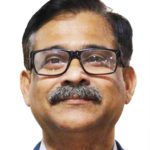 |
Honorable Chief Guest Prof. (Dr.) Dhrubajyoti Chattopadhyay Hon’ble Vice Chancellor, Sister Nivedita University, Kolkata Click Here to view the Brief CV of Prof. Dhrubajyoti Chattopadhyay |
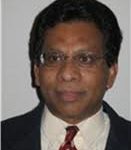 |
Honourable Guest of Honour Prof. Samar K Saha Chief Scientist, Prospicient Devices, USA IEEE EDS DL Click here to view the brief CV of Dr. Samar Saha |
 |
Prof. (Dr.) Yogesh Singh Chauhan, Fellow IEEE, FNAE IEEE EDS Distinguished Lecturer (EDS DL), Editor, IEEE Transactions on Electron Device Professor, IIT Kanpur, India Click here to view the short CV of Prof. Yogesh Singh Chauhan Click here to view the abstract of the talk by Prof. Yogesh Singh Chauhan |
 |
Prof. Anisul Haque Professor, Dept. of Electrical and Electronics Engineering East West University, Bangladesh IEEE EDS Distinguished Lecturer (EDS DL) Click here to view the short CV of Prof. Anisul Haque Click here to view the abstract of the talk by Prof. Anisul Haque |
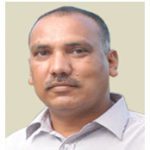 |
Prof. (Dr.) Ajit Kumar Panda, PDF (USA) IEEE EDS Distinguished Lecturer Professor, National Institute of Science and Technology, Odisha, India Click here to view the short CV of Prof. Ajit Kumar Panda Click here to view the abstract of the talk by Prof. Ajit Kumar Panda |
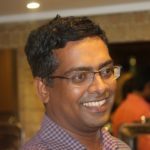 |
Prof. (Dr.) Nihar Ranjan Mohapatra, PhD, SM-IEEE Professor, Electrical Engineering, Indian Institute of Technology Gandhinagar Click here to view the short CV of Prof. Nihar Ranjan Mohapatra Click here to view the abstract of the talk by Prof. Nihar Ranjan Mohapatra |
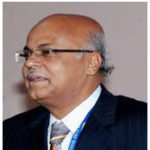 |
Prof.(Dr.) Subir Kumar Sarkar IEEE EDS Distinguished Lecturer Senior Member- IEEE, FIETE, FIE Professor, Dept. of ETCE, Jadavpur University, Kolkata, India Click here to view the short CV of Prof. Subir Kumar Sarkar Click here to view the abstract of the talk by Prof. Subir Kumar Sarkar |
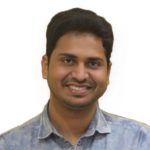 |
Dr. Shubham Sahay Dept. of ECE, IIT kanpur Click here to view the short CV of Dr. Shubham Sahay Click here to view the abstract of the talk by Dr. Shubham Sahay |
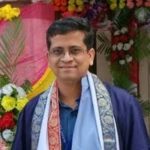 |
Prof. (Dr.) Debashis De, FIETE, SM-IEEE Professor, Dept. of CSE, MAKAUT, West Bengal Click here to view the short CV of Prof. Debashis De Click here to view the abstract of the talk by Prof. Debashis De |
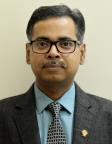 |
Prof. (Dr.) Navneet Gupta, FIE; SM-IEEE Professor and Head, Department of Electrical & Electronics Engineering, Birla Institute of Technology and Science, Pilani Click here to view the short CV of Prof. Navneet Gupta Click here to view the abstract of the talk by Prof. Navneet Gupta |
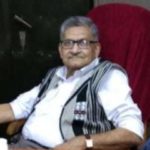 |
Prof. (Dr.) P. K. Basu Ex-Professor, Institute of Radio Physics and Electronics, Calcutta University Click here to view the short CV of Prof. P. K. Basu Click here to view the abstract of the talk by Prof. P. K. Basu |
 |
Prof. (Dr.) Amitabha Sinha, FIE Adjunct Faculty & Director (Academic Reforms), Department of Microelectronics and VLSI Technology MAKAUT, West Bengal Click here to view the short CV of Prof. Amitabha Sinha Click here to view the abstract of the talk by Prof. Amitabha Sinha |
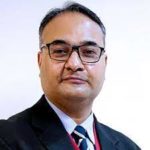 |
Prof. (Dr.) Rajnish Sharma Pro Vice Chancellor (Academic affairs) Chitkara University, Punjab Click here to view the short CV of Prof. Rajnish Sharma Click here to view the abstract of the talk by Prof. Rajnish Sharma |
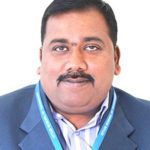 |
Prof. N. Mohankumar Professor, EECE Department GITAM Deemed to be University, Bengaluru, India Click here to view the short CV of Dr. N. Mohankumar Click here to view the abstract of the talk by Dr. N. Mohankumar |
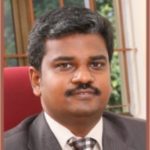 |
Prof. (Dr.) D. Nirmal, SM-IEEE Professor & Head, Department of Electronics and Communication Engineering, Karunya Institute of Technology and Sciences(Deemed to be University). Coimbatore Click here to view the short CV of Prof. D. Nirmal Click here to view the abstract of the talk by Prof. D. Nirmal |
 |
Prof. ( Dr.) Moumita Mukherjee Professor & Dean ( R&D) Adamas University, Kolkata Click here to view the short CV of Prof. Moumita Mukherjee Click here to view the abstract of the talk by Prof. Moumita Mukherjee |
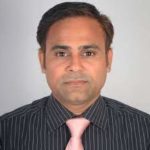 |
Dr. Trupti Ranjan Lenka, PhD (Engg.) Associate Professor, Dept. of Electronics & Communication Engineering, National Institute of Technology Silchar Click here to view the short CV of Dr. Trupti Ranjan Lenka Click here to view the abstract of the talk by Dr. Trupti Ranjan Lenka |
 |
Dr. Aminul Islam Associate Professor, Dep. of ECE BIT Mesra, Ranchi Click here to view the short CV of Dr. Aminul Islam Click here to view the abstract of the talk by Dr. Aminul Islam |
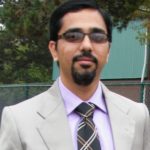 |
Dr. Rudra Sankar Dhar, PhD(Can), FIETE Associate Professor. Department of Electronics & Communication Engineering National Institute of Technology Mizoram Click here to view the short CV of Dr. Rudra Sankar Dhar Click here to view the abstract of the talk by Dr. Rudra Sankar Dhar |
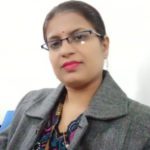 |
Dr. Suman Lata Tripathi, FIETE, SM-IEEE Professor (VLSI Design), School of Electronics and Electrical Engineering Lovely Professional University, Jalandhar Click here to view the short CV of Prof. Suman Lata Tripathi Click here to view the abstract of the talk by Prof. Suman Lata Tripathi |
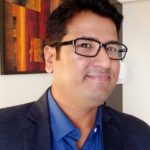 |
Dr. Ratul Kr. Baruah Associate Professor, Electronics and Comm. Engineering, Tezpur University, Assam Click here to view the short CV of Dr. Ratul Kr. Baruah Click here to view the abstract of the talk by Dr. Ratul Kr. Baruah |
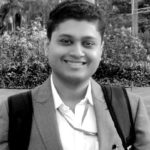 |
Dr. Rupam Goswami, SM-IEEE Asst. Professor, Electronics and Communication Engineering, Tezpur University Click here to view the short CV of Dr. Rupam Goswami Click here to view the abstract of the talk by Dr. Rupam Goswami |
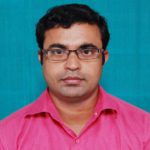 |
Dr. Chandan Pandey Assistant Professor Vellore Institute of Technology, Amaravati Click here to view the short CV of Dr. Chandan Pandey Click here to view the abstract of the talk by Dr. Chandan Pandey |
 |
Dr. Sonam Rewari Assistant Professor, Dept. of ECE DTU, New Delhi Click here to view the short CV of Dr. Sonam Rewari Click here to view the abstract of the talk by Dr. Sonam Rewari |
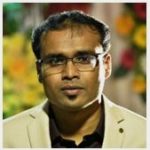 |
Dr. Jadav Chandra Das Assistant Professor , Department of Information Technology, West Bengal University of Technology . Renamed as Maulana Abul Kalam Azad University of Technology,West Bengal Click here to view the short CV of Dr. Jadav Chandra Das Click here to view the abstract of the talk by Dr. Jadav Chandra Das |
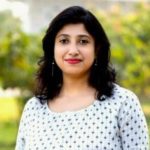 |
Dr. Papiya Debnath Associate Professor, Dept. of BSH, Techno International New Town Click here to view the short CV of Dr. Papiya Debnath Click here to view the abstract of the talk by Dr. Papiya Debnath |
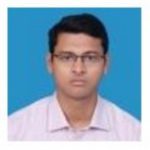 |
Dr. Taraprasanna Dash Associate Professor, Department of ECE, ITER, S.O.A (Deemed to be University), Bhubaneswar, Odisha Click here to view the short CV of Dr. Taraprasanna Dash Click here to view the abstract of the talk by Dr. Taraprasanna Dash |
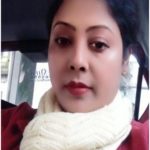 |
Dr. Debarati Dey Assistant Professor, Dept. of ECE B.P. Poddar Institute of Management and Technology Click here to view the short CV of Dr. Debarati Dey Click here to view the abstract of the talk by Dr. Debarati Dey |
A. Keynote/Plenary Talk
B. Technical Talks
C. Pre-Conference Tutorial
D. Exhibition
Conference Venue: Vedic Village
Address: Shikharpur, P.O – Bagu – Rajarhat – Kolkata – 700135, Landmark – Lauhati,
Website: https://www.thevedicvillage.com/
Venue Information: Vedic Village Spa Resort is a hidden gem, nestled in the lap of nature just 20 minutes away from the international airport in Kolkata, India. Built horizontally in the authentic architecture of Bengal villages, the world- class luxury resort blends in completely with the uniqueness of the landscape. It combines tremendous natural beauty and outdoor fun with unbeatable indoor luxury. A boutique getaway sprawling over 150 acres of fertile farmland greenery, sparkling lakes, coconut groves and a wealth of flora; it is a haven for migratory birds, butterflies, squirrels and exotic species of plants.
Car service will be provided from Vedic Village to Ecospace/ Rajarhat Chowmatha in morning or evening.
Google Map location of Vedic Village:
EDKCON 2022 Book of Abstracts
List of Accepted Papers in EDKCON 2022 (As on 20-10-2022)
List of Registered Papers in EDKCON 2022 (As on 19-11-2022)
Template PowerPoint Presentation with Guideline for preparation an submission of PPT files
Incredible India
About Kolkata, City of Joy: Kolkata, formerly known as Calcutta, is the capital of West Bengal state of India. The city is regarded as the cultural capital of the country. It is at the same time the financial capital of eastern India, a gateway to the far-flung areas of the region. The city, located on the east side of the river Hooghly, has a glorious past and an ever-blooming present. The metropolitan city of Kolkata is not just well-known for its roshogollas, mishit dohi, trams, Howrah Bridge and Victoria memorial, but also for its inexpensive nature. When compared to the other metro cities, Kolkata is said to be the most economical city. Maybe this is the reason it is called as the city of joy.
Travel To Kolkata
Hotels
Tourist Attractions
*To be completed by the authors of the paper(s) after obtaining final acceptance and completion of the registration process
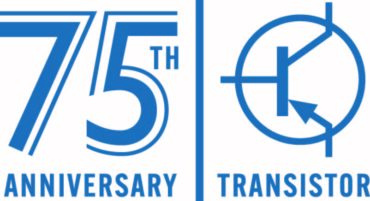
2 Days IEEE EDS Technical Talk
On
“TRANSISTORS : THE PRESENT, PAST, FUTURE”
Organized by
IEEE EDS Kolkata Chapter
Date : 26th – 27th November, 2022
Venue: Vedic Village, Kolkata
The Electron Devices Society has decided to celebrate the year 2022-2023 as the 75th Anniversary of the Transistor. As the history of this invention and of its consequences is much more involved and interesting, it is imperative that the leading EDS Luminaries share the scientific & technological developments which took place in the last 75 years, with the current generation of researchers. This event shall be a mark of tribute to the men and women who have contributed to the Transistor Story – Discovery, Development, and Applications which has had a lasting impact on people’s lives and has benefited mankind where it serving good in social relations, caring for the Earth, science, technology, engineering, and economy.
Technical Schedule: TBA

